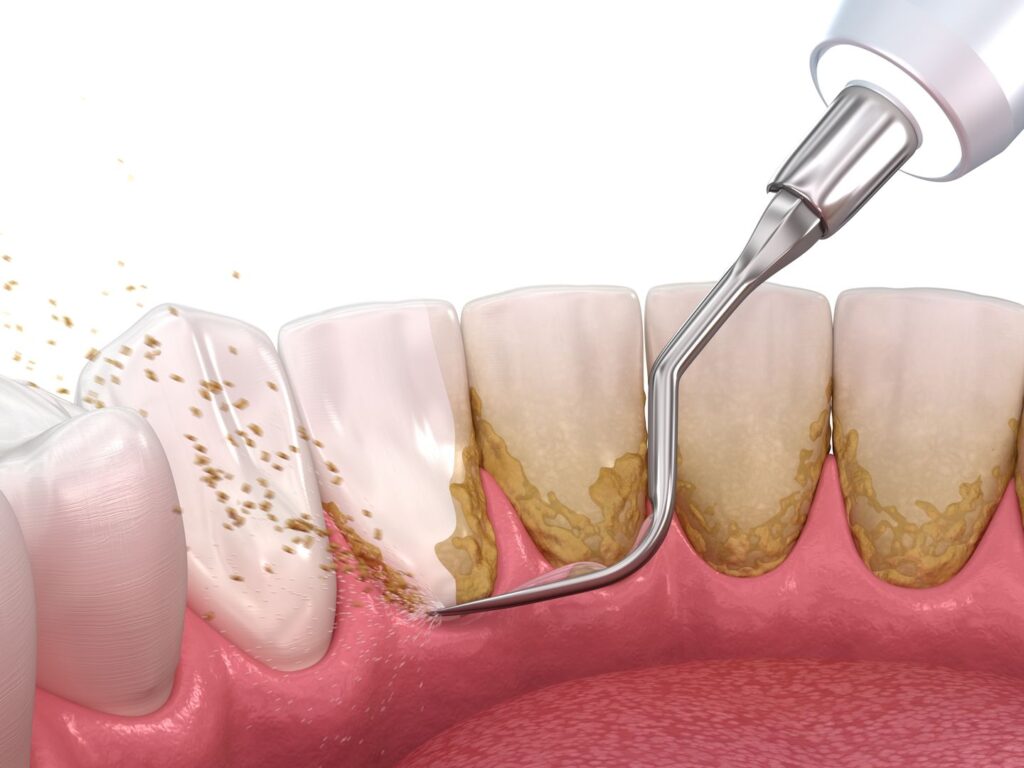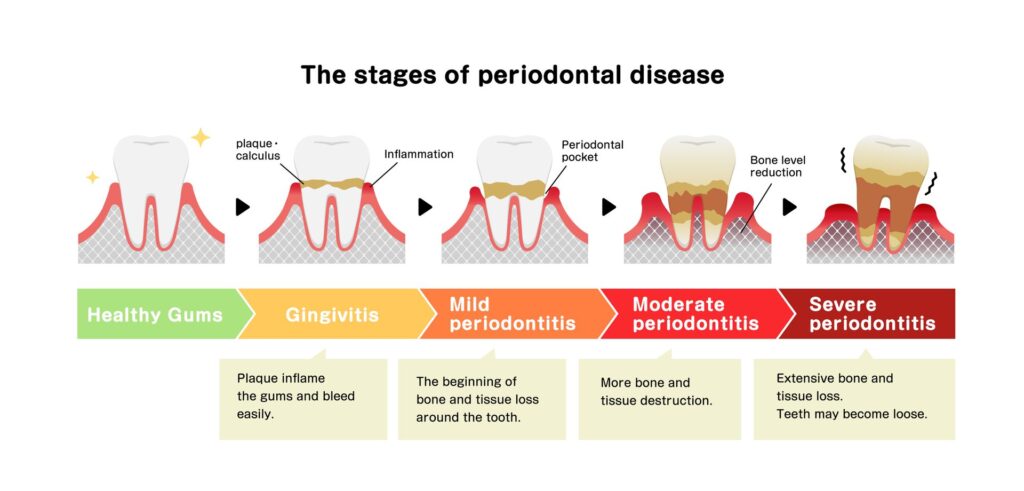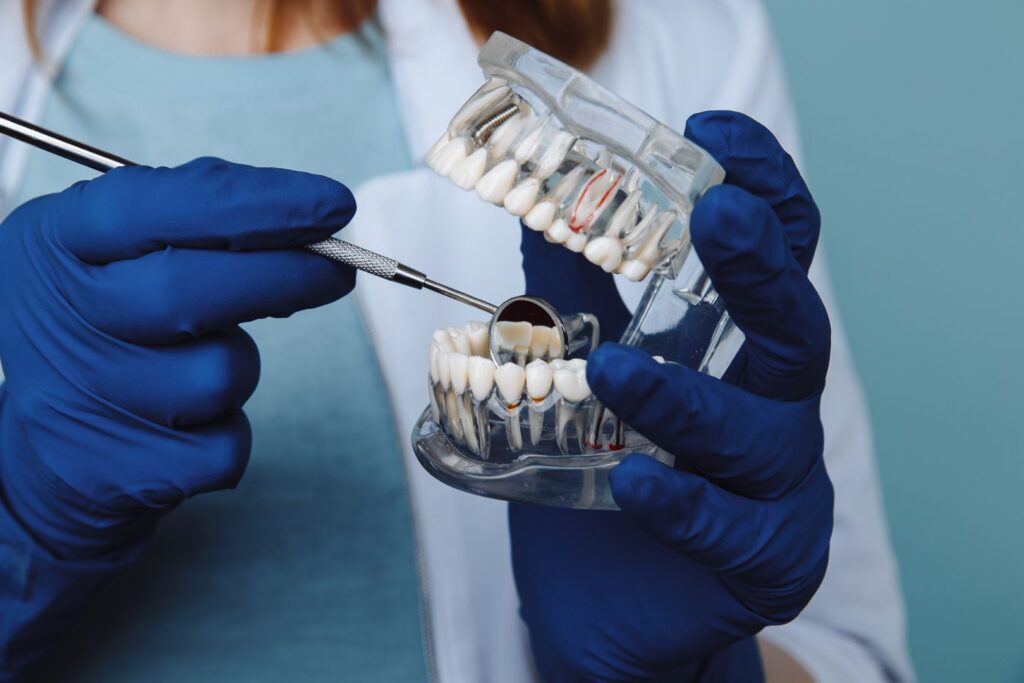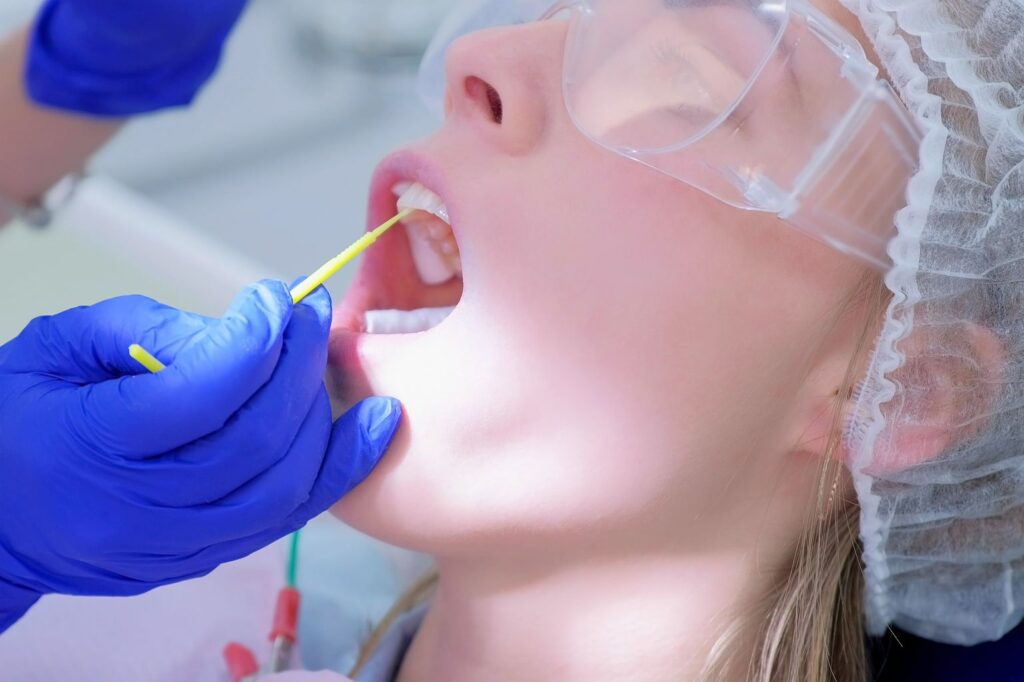One of the first lessons you may have picked up as a kid is that brushing your teeth twice daily will keep your dental health in check.
You’ve always maintained this practice – as soon as you wake and before bedtime. More so, you’ve passed down that tradition to others who are related to you.
However, it’s a rude shock to spot yellowing and tartar buildup in your teeth as you grow up.
And the reason isn’t farfetched.
No matter how much you brush, floss, or wash your mouth, particles of your meals and drinks will always remain in your teeth.
Left unchecked, the bacteria in your teeth will cause temporary and permanent problems. This often leads to poor oral health care.
Thus, seeking professional dental cleaning and scaling every six months is recommended to keep your teeth sparkling clean.
This article explores all you need to know about cleaning and scaling your teeth. Let’s jump right in:
Dental Services: What is Cleaning and Scaling?
Teeth cleaning and scaling is a dental treatment that keeps your teeth strong and healthy. It is usually conducted by a professional dentist who critically cleans and washes your teeth from all plaque and food debris on the surface or between your teeth.

Before the procedure, the dental team will examine your teeth and conduct periodontal charting. This special procedure reveals if your teeth are free from disease. After the examination, the dentist will then kick off the operation using special dental instruments.
A professional dentist also removes the bacteria hiding along your teeth’ gum line during cleaning and scaling.
This procedure is encouraged to reduce the risk of gum disease, tooth decay, oral cancer, and other dental issues.
More so, dental cleaning and scaling are done to prevent the spread of periodontal disease.
Typically, after the dental services, your dental hygienist will provide you with tips to keep your mouth healthy.
What is Periodontal Disease and What Causes It?
Periodontal disease occurs when bacterial growth in your mouth damages the soft tissue of your gum.
When left untreated, it ultimately destroys the bone supporting your tooth, leading to tooth loss.

In its earlier stages, it is known as gingivitis – an occurrence of gum inflammation. As a result, it causes your gums to bleed even while brushing mildly.
However, not all gingivitis will lead to periodontal diseases (or periodontitis).
You may experience mild gum inflammation, which you may easily ignore. However, it is recommended to have it checked out to prevent the development of periodontal disease.
So, what causes periodontal disease?
- Constant tobacco use. Tobacco smokers are more likely to have tartar build on their teeth which will cause periodontal disease. Your healthy teeth will take a hit if unchecked.
- Poor diet. Malnutrition is also another cause of periodontal disease. You’re not giving the body sufficient nutrients and agents to fight off bacteria buildup.
- Teeth grinding. Periodontal disease can also occur as a result of teeth grinding. This happens when there’s a misalignment between your teeth’ upper and lower sections.
- Medications. Medications such as oral contraceptives, steroids, and anti-depressants may affect the overall integrity of your teeth and gums, leading to periodontitis.
- Pregnancy and menopause. Hormonal changes during menopause or pregnancy tend to make the gums more susceptible to periodontal disease.
- Poor dental hygiene. When your dental hygiene is poor, your gums will be prone to periodontitis.
Your oral health goes a long way to impact your overall health. You should be mindful of what gets into your mouth.
Regular check ups with your dentist will expose some of these issues, which will prevent serious operations like tooth extraction.
It is essential to visit a dental clinic as soon as you begin to experience any of the following early signs:
- Bad breath
- Pus between your teeth and gum line
- Painful chewing
- Tender gums
- Spitting out blood
- Swollen or puffy gums
Importance of Regular Cleaning and Scaling
Regular dental cleaning and scaling have several benefits, as it tackles dental and oral threats in your mouth before they transform into something worse.

Some of its benefits include:
- Prevention of tooth decay and cavities. Scaling and cleaning can prevent the occurrence of tooth decay and cavities. Preventative measures are carried out to remove tartar and plaque buildup in your mouth.
- Prevention of gum disease. Plaques and bacteria do not only affect your teeth but attack your gums as well. Dental scaling and cleaning will remove bacteria attacking the gum, preventing inflammation and gingivitis.
- Lowering bad breath. Scaling and cleaning your teeth will drastically lower bad breath, as it removes tartar build up. However, the responsibility lies with you to take care of your teeth with regular brushing and flossing.
- Improving your general health. Cleaning and scaling your teeth every 6 months can greatly improve your overall health. The reason is that gum disease and inflammation can lead to hardened arteries which may cause heart stroke or attack.
- Removal of stains. Tooth stains result from the food and drinks that stubbornly stick to the teeth. Scaling and cleaning will remove these stains, blessing you with sparkling white teeth.
- Detection of other dental issues. Another benefit of dental cleaning and scaling is that it allows for the quick detection of issues that might threaten the health of your teeth and mouth.

- Cost-effective compared to restorative procedures. Ever heard of the phrase ‘prevention is better than cure? Dental scaling and cleaning will save you from spending more on restorative procedures if your teeth get damaged.
Where Can You Get Cleaning and Scaling?
If you’re a Perth, Western Australia resident, you should seek professional scaling and clean at Nunyara Dental.
Nunyara Dental is a leading professional clinic offering patients top-notch dental and oral care. Our dental care include preventative, protective, restorative, and emergency assistance to people of all ages.
You can find us at 108 Cockman Rd, Greenwood, WA 6024 and on weekdays between 7 am – 5 pm. You can contact us by placing a call across or sending an email to book an appointment.

